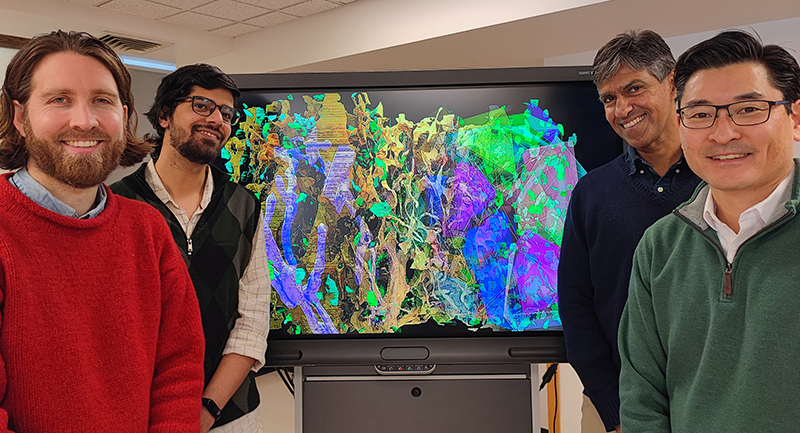Author: Julie
-
Postdoctoral Researcher – Hazrati lab, McGill University
We are seeking a postdoctoral researcher to advance projects within our lab studying the molecular mechanisms driving brain dysfunction after mild traumatic brain injury (mTBI). In particular, we are interested in discovering novel molecular mechanisms associated with trauma which may reflect clinicopathology and/or serve as potential biomarkers. This position will involve studies using human brain…
-
Assistant Professor – Biological Psychiatry – University of Saskatchewan
Applications are invited from qualified individuals for a tenure-track position at the level of Assistant Professor with the Department of Psychiatry, in the area of Biological Psychiatry. We are searching for individuals with exceptional promise to develop a vibrant, externally funded research program. While we encourage applications from candidates studying any aspect of Biological Psychiatry,…
-
Postdoc in Barcoded Connectomics and Circuit Neuroscience – Johns Hopkins School of Medicine in Baltimore, MD, USA
We are looking for several postdoctoral fellows to join the Kebschull Lab at the Department of Biomedical Engineering at the Johns Hopkins School of Medicine in Baltimore, MD, USA. These NIH-funded positions are for postdocs to develop new tools to integrate barcoded connectivity tracing, gene expression, and function in the zebra finch brain or bring…
-
2023 Elections Call for Nominations: CAN Vice-President-elect, CAN Secretary-elect, CAN Board members
CAN will be holding elections for the following Board of Direction positions: Vice-President (President elect) Secretary-elect 2 board members We are now sending a call for nominations for these positions. Please note that only members in good standing can submit nominations.
-
Chair, Department of Cellular and Molecular Medicine, University of Ottawa
The University of Ottawa and its Faculty of Medicine (FoM) invite applications for a dynamic academic leader as Chair of the Department of Cellular and Molecular Medicine (CMM). The University of Ottawa is the first and the largest Canadian bilingual institution of higher learning and research. The university ranks #2 among Medical/Doctoral institutions in Canada…
-
Chair, Associate/Full Professor, Department of Psychology – University of Northern British Columbia
Faculty of Human and Health Sciences Tenured Posting #FAPS01-23 CAN The University of Northern British Columbia (UNBC) invites applications for a tenured position as Chair of the Department of Psychology at the rank of Associate or Full Professor, with proposed starting date of July 1, 2023. As an institution committed to the fostering of an…
-
CAN submits a brief to the House of Commons permanent committee on Science and Research on “International Moonshot Programs”
The Canadian Association for Neuroscience joined its voice to a large coalition of Canadian stakeholders calling for the Canadian government to invest in a Canadian Brain Research Initiative, to make Brain and Mental Health Research a National Priority in Canada. Read our brief, along with those of many other stakeholders, on the House of Commons…
-
CAN submits a brief to the Science and Research committee on International Moonshot Programs
Read our submission to the latest consultations of the House of Commons Science and Research Committee: Brain and Mental Health Research as a National Priority
-
The CHU Sainte-Justine makes a giant step forward in understanding autism
Source : CHU Sainte-Justine Research Centre MONTREAL, February 16, 2023– Results of a new study led by Roberto Araya, a neuroscientist, biophysicist and researcher at the CHU Sainte-Justine Research Centre, show that in Fragile X syndrome (FXS), the most common cause of autism, sensory signals from the outside world are integrated differently, causing them to…
-
RI-MUHC and McGill researchers make a breakthrough in understanding brain nanoarchitecture, using computer vision
A new study published in Current Biology reveals the nanostructure of brain cells at an unprecedented level of resolution SOURCE: RI-MUHC. Brain cells are among the most anatomically complex cells in the human body. They create an intricate web of connections that enables the brain to detect, process, encode and respond to diverse information. Importantly,…


